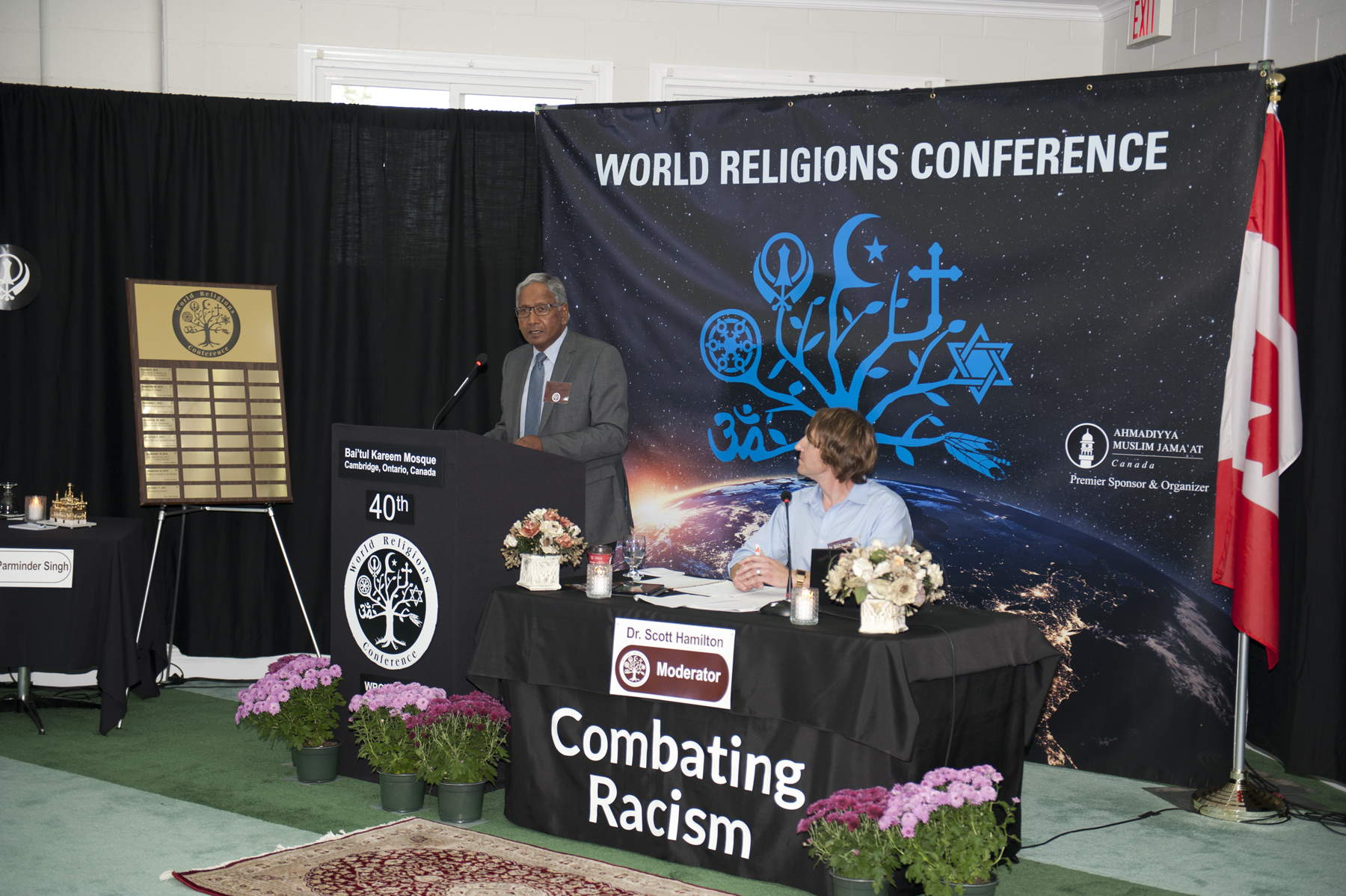Combating Racism
Christian Perspective
by Rev. Dr. Das Sydney
Highland Baptist Church

Abstract of Theme Speech
Many scholars of our time have explained, with undeniable evidence, that the driving force for racist ideology in North America, is white supremacy. Sadly, in many cases, the church has been a complicit tool, a co-conspirator in subjugation and a key weapon used to justify a racist outlook that clings to the notion of a hierarchy of races. It is a form of caste system that marginalizes racialized peoples.
This kind of racism is nestled deeply in the foundations of our culture. There are few evils which are as cruel, ubiquitous and perduring as racial injustice. It impairs the ability to be on equal footing in any field of public life. Some theorists have observed that racism is part of our status quo and deeply engrained in our interactions and institutions. The situation may seem hopeless since power and privilege do not concede their advantage without a struggle. But we take hope in the compelling testimony of our Scriptures, that God is on the side of the oppressed. During the time of slavery, many enslaved people found considerable strength and hope in the story of Moses, who led his people out of captivity in Egypt. Others found comfort in the vision of the prophet Isaiah, of fresh life sprouting out of a stump left for dead. If we are going to combat racism, it begins by being well informed and aware. Jesus admonishes his followers to stay “awake.” He warned that in the days of Noah, people were, “eating and drinking and giving in marriage,” heedless of the ways of God. They did not care that anything was wrong. It is important for people of faith to be alert and intervene where there is injustice, and rebuke other nuanced and convert forms of racism.
Given the deeply rooted nature of racism, we cannot disengage from society, but approach culture with a view to changing minds and challenging social norms. Jesus said, “You are the salt of the earth.” At our best, we stand for truth, justice and love. The movement, “Black Lives Matter,” sprang up in the wake of the killing of Trayvon Martin. In a climate of violence that seemed to say, “Black lives do not matter,” it was a defiant cry that affirmed, “Black lives do matter!” The phrase galvanized the world and resulted in marches around the globe. We affirm that we are, every one of us, without exception, made in the image and likeness of God. (Genesis 1:24). We mock God when we diminish the black body, or any person, of any colour, made in God’s image. At the Canadian Council of Churches (CCC) which represents over 85% of Christians in Canada, and 26 different denominations, we are honouring the United Nations International Decade for People of African Descent with webinars and workshops, learning about Black history in Canada and the injustices that Black Canadians continue to experience.
In the Canadian context, our conspiracy of silence about our history with First Nations is slowly unraveling, splaying out to the world, our cruelty, injustice, and dishonesty. The impact of a violent colonial history has resulted in intergenerational trauma that continues to harm individuals and communities. Furthermore, we are, all of us, without exception, beneficiaries of Treaties made, and accountable for those left unfulfilled. In response to the 94 Calls to Action issued by the Truth and Reconciliation Commission, most of our member churches have repudiated the so-called Doctrine of Discovery and Terra Nullius, that Canada was nobodies land and was free for the taking.
At the Truth and Reconciliation Commission hearing in Edmonton in 2014, the Canadian Council of Churches made a statement that reads in part: As Christian communities, we take seriously the challenge of reconciliation, to deepen bonds of friendship and solidarity….
We commit to undertake education programs in our churches aimed at increasing our knowledge and awareness of the past….
If biases and prejudice reflect learned attitudes and behaviour, they can also be unlearned. Through the CCC, we have published various resources to help us move forward. We have made use of the Blanket Exercise developed by Kairos, a partner organization, that vividly illustrates how Indigenous Peoples in Canada were robbed and relegated to the smallest portions of land on Turtle Island.
The Mission Statement of the CCC, has the evocative phrase, that we have an “affection for diversity.” But the kind of wholesome diversity, inclusion and justice we long for, continues to be a challenge in the presence of all forms of racism, discrimination, xenophobia, Islamophobia and Anti-Semitism.
Jesus often made Samaritan’s (a derided race in his time in history) the heroes of his stories. In his first sermon, he told how the prophet Elijah helped a Syrophoenician woman and how his compatriot Elisha healed a Syrian general of his leprosy. In one of his parables, he said at the final judgement, he would say to the faithful, “I was a stranger and you welcomed me.” There is no room for exclusion. In our Creator’s world, there are no second-class citizens.
Paul, the primary interpreter of Jesus in the early church, declared, “There is no longer Jew or Greek, there is no longer slave or free, there is no longer male and female; for all of you are one in Christ Jesus.”
The pastor and social reformer, Martin Luther King Jr. frequently spoke of a beloved community, where all forms of discrimination, bigotry and prejudice are replaced by belonging and love. We call that love the Golden Rule, and versions of it, tie all of us together, regardless of our faith or tradition.


